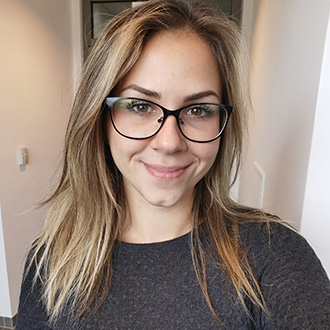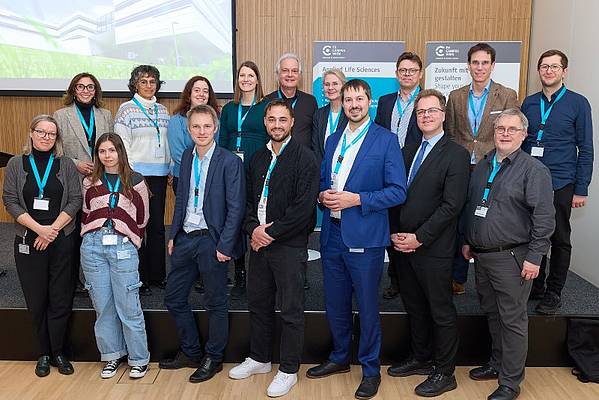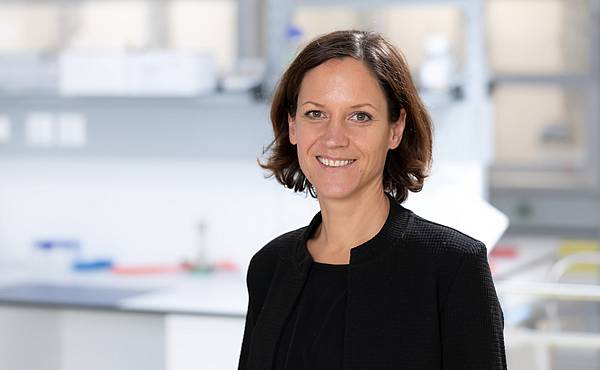Inhalt
- The SEiPT II course consolidates and extends the knowledge and skills relevant for packaging technologists from the previous SEiPT I course.
- Topics will be chosen which align with the aims of the degree programme and by working closely with other lecturers will complement the content of courses running in parallel.
Lernergebnisse
Upon successful completion of the course graduates are able to consolidate and build on their knowledge and skills from the previous
SEiPT I course
Upon successful completion of the course graduates are able to analyse and understand the scientific literature (scientifically and
linguistically)
Upon successful completion of the course graduates are able to write using good scientific style
Upon successful completion of the course graduates are able to discuss/debate/negotiate using the appropriate language and techniques
Upon successful completion of the course graduates are able to use appropriate language for ‘pitching’ ideas
Upon successful completion of the course graduates are able to judge their own and their peers’ performance and provide feedback taking professional etiquette into account
Upon successful completion of the course graduates are able to source national/international funding for their professional development
Upon successful completion of the course graduates are able to navigate and productively contribute to an international/interdisciplinary working environment with the appropriate
skills and mindset.
Lehrmethode
Didactic setting – in class (face-to-face) and online teaching:
1.5 SWS / 3 ECTS (= 75 TU workload students) =
11 TU in class teaching (face-to-face)
64 TU distance learning (=workload students)
Presentational methods:
face-2-face content input supported by further Moodle resources, relevant to each session.
Participatory methods:
student-centered individual and group tasks: problem-solving scientific tasks, debates, pitch presentations and career development tasks.
Depending on previous experience, expertise, and also personal interest, students work at their own speed to acquire scientific/technical knowledge and develop their personal career.
In addition to deepening knowledge of specific topics, through group work students acquire additional competences such as social, linguistic, discussion and presentations skills.
Additionally, they gain experience of working in international and interdisciplinary groups.
Note that some tasks are in collaboration with the courses SARM and IES.
Prüfungsmethode
Immanente Leistungsüberprüfung: The integrated course is assessed through formative assessment. By
awarding points during the integrated course (ongoing performance
evaluation + 80% mandatory attendance) and not just at the end
through a final examination, several advantages arise:
- The workload is distributed evenly throughout the semester.
- The assessment does not represent a snapshot.
- Teaching methods can be modified and adjusted as needed.
- Students take active responsibility for the learning process and receive
individual courses for action.
In detail, the course is assessed through the following partial
performance evaluations:
1. Introductory questionnaire (5 points)
2. Scientific literature (group work, 10 points)
3. Scientific literature (individual work, 15 points)
4. Debate (individual preparation & participation, 20 points)
5. Pitch (group work & presentation, 25 points)
6. Career development (individual work, 20 points)
7. Course reflection (5 points)
The overall assessment of all partial performances will be
communicated by the lecturer in Moodle. The maximum achievable score
for the overall assessment of all partial performances is 100 points.
The overall assessment will be carried out according to the following
grading scale and will be communicated by the course instructor in the
students portal.
> 0 to 59 points => insufficient (5)
> from 60 points => sufficient (4)
> from 70 points => satisfactory (3)
> from 80 points => good (2)
> from 90 points => excellent (1)
Literatur
- McCarthy & O'Dell (2016) Academic Vocabulary in Use, Cambridge University Press, ISBN-13: 978-1-107-59166-0
- Manchester Academic Phrasebank (2020) www.phrasebank.manchester.ac.uk
- Skern (2011) Scientific Writing: A Workbook, Facultas WUV UTB, ISBN-13: 978-3-8252-3619-9
- Additionally, online resources are provided in Moodle.
Unterrichtssprache
Englisch















